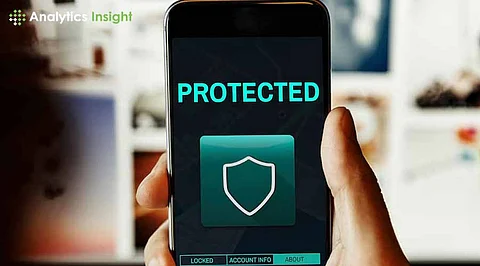

Apple is always known for its customer data security, but it doesn't make your data automatically protected; if you are not using the proper settings, your iPhone privacy will still be at risk. As hackers become more clever, iPhone users should keep up with the latest security measures.
Follow these 10 essential iPhone security tips and keep the device safe.
Two-factor authentication or 2-step verification: This step will add an extra layer of security to your Apple ID account by requiring both the password and a verification code.
Biometric Authentication: Using Face ID or Touch ID is one of the easiest ways to keep the iPhone secure. Since these features rely on each unique biological trait—like your fingerprint or facial structure—they make it much harder for anyone else to unlock your device.
Updated iOS: By updating to the latest iOS version, the iPhone will enhance security by patching vulnerabilities and introducing new security features, protecting the device and data from potential threats.
Managing App Permissions: Reviewing and restricting apps from accessing sensitive data like location, contacts, and the gallery will help to improve iPhone privacy.
Using a Strong Passcode: Use a long and strong passcode that is a mix of letters, numbers, and symbols for securing the iPhone. It will make it harder for unauthorized individuals to access any iOS device and its data, including personal information, apps, and iCloud accounts.
Limit Ad Tracking (LAT): LAT is an iPhone privacy setting that can prevent apps from tracking your activity across other companies' apps and websites for advertising purposes
Encrypted Messaging Apps: By using apps like iMessage, Signal, and WhatsApp, which provide end-to-end encryption, one can communicate securely.
Review iPhone Privacy Settings Regularly: The crucial step for maintaining iPhone security is to regularly review the iPhone’s privacy settings and maintain control over the data, ensuring secure online experiences.
App Downloading: Being cautious while downloading apps and downloading only from the official app store will help users avoid viruses like malware.
Clearing History: Clearing history will work as a protection shield to keep your personal info safe. Even though it has positive sites for saving history, it can expose your private searches and reading, so it will be helpful to erase the browsing history from time to time.
Erase Your Data Automatically After 10 Failed Attempts: One can set their iPhone to automatically erase all the data after 10 wrong passcode attempts.
Customizing iPhone's Content and Privacy Restrictions: With iOS 12, customers have more control over content and privacy restrictions. Based on the customers' needs, one can allow or disallow installing and deleting.
Though the Apple iPhones is known for its security, taking extra steps to protect our data and knowing more about iPhone security and iPhone privacy settings will help to protect our privacy, and these are some of the essential steps that will help with iPhone security and protect your personal data. It is highly recommended to use these iPhone security tips to protect your iPhone.
